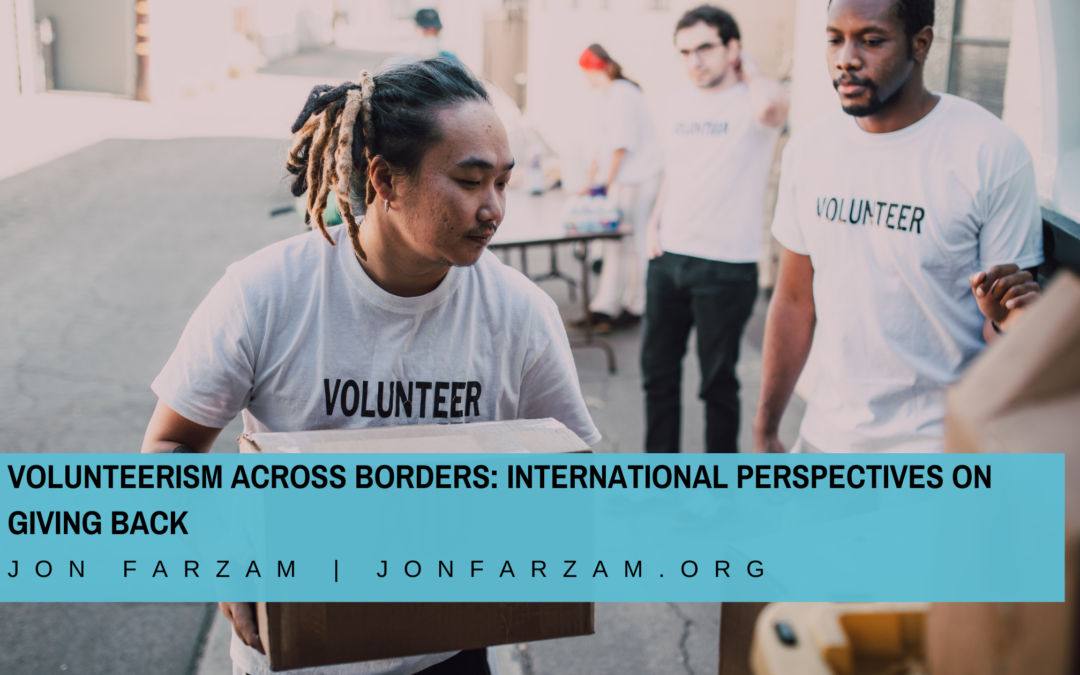Volunteerism, the selfless act of giving one’s time, skills, and resources, transcends geographical borders. It embodies a universal language of compassion and solidarity, fostering connections that surpass cultural, linguistic, and national barriers. From remote villages to bustling metropolises, the spirit of volunteerism resonates globally, illuminating diverse perspectives on giving back.
Unifying Diversity:
Across continents, the essence of volunteerism manifests uniquely within each society. In some cultures, communal values drive collective volunteer efforts, emphasizing the interconnectedness of communities. For instance, in Japan, the concept of “Kizuna,” or bonds between people, fuels volunteerism, leading to selfless contributions towards the betterment of society.
Conversely, in Western societies, volunteerism often thrives within organized structures, such as non-profits and NGOs. These entities mobilize individuals to support causes both locally and internationally, reflecting a widespread desire to effect positive change beyond one’s immediate environment.
Cultural Richness in Giving:
The beauty of volunteerism lies in its adaptability to diverse cultural contexts. For example, the “seva” or selfless service philosophy holds profound significance in India. It motivates countless individuals to engage in various acts of kindness, from feeding people to providing educational opportunities for underprivileged children.
In Latin America, “solidaridad” permeates volunteer efforts, emphasizing the importance of unity with marginalized communities. Volunteers engage in various initiatives, from environmental conservation to advocating for social justice, echoing the region’s rich history of collective action.
Global Challenges, Collective Solutions:
Volunteerism across borders becomes especially poignant in addressing global challenges. Natural disasters, pandemics, and socio-economic disparities recognize no boundaries. In response, international volunteers converge to provide aid, relief, and support where needed most.
The COVID-19 pandemic showcased the power of global volunteerism, with individuals from various nations offering virtual assistance, medical expertise, and humanitarian aid. Volunteers became instrumental in disseminating accurate information, supporting healthcare systems, and assisting vulnerable communities worldwide.
Empathy Knows No Borders:
The essence of volunteerism lies not only in tangible contributions but also in fostering empathy and understanding. Individuals volunteering across borders gain firsthand insights into diverse cultures, broadening their perspectives and nurturing a global mindset. This cultural exchange cultivates mutual respect and appreciation, transcending differences and fostering a shared humanity.
Challenges and Opportunities:
While volunteerism across borders embodies hope and solidarity, it also encounters challenges. Language barriers, logistical complexities, and varying socio-political landscapes can pose hurdles. However, these challenges spark innovation and collaboration, leading to the development of creative solutions and fostering partnerships between diverse groups and organizations.
In volunteerism, technology serves as a catalyst, enabling seamless cross-border collaborations. Virtual volunteering platforms and digital communication tools connect individuals worldwide, facilitating the exchange of ideas and resources irrespective of geographical distances.
Volunteerism across borders exemplifies the innate human inclination towards compassion and altruism. It amplifies the collective power of individuals united in pursuing positive change. Embracing international perspectives on giving back enriches communities and addresses global challenges but also nurtures a world where empathy transcends borders, fostering a shared vision of a better tomorrow—a tomorrow shaped by boundless generosity and unity in diversity.

